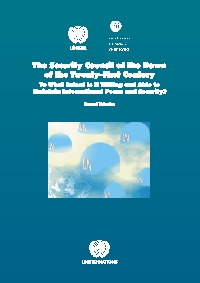In the midst of numerous categorical—and often hasty—judgements about the Security Council's supposed irrelevance or obsolescence, as well as amid heated controversy surrounding the role of the Security Council with reference to Iraq, and a continued upsurge of concerns related to terrorism and to weapons of mass destruction, notably in the hands of non-state actors, the future of the Security Council remains high on the international agenda.
The author, an experienced practitioner of Security Council diplomacy, brings a personal and sobering perspective on the Council's performance in carrying out its 'primary responsibility for the maintenance of international peace and security', entrusted to it by the Charter of the United Nations.
Unlike numerous existing works, which deal with the Security Council through the angle of one or a few specific international crises, Pascal Teixeira's focus is on the Council in itself, through the successive prisms of major international security issues since the end of the Cold War. In so doing, he provides a valuable contribution to explaining the day-to-day functioning of an institution often in the headlines, but whose numerous specificities and various practical modes of operation are all-too-little known outside the circle of experts and diplomats with direct experience of the Security Council.
Citation: Pascal Teixeira (2004). "The Security Council at the Dawn of the Twenty-First Century: To What Extent Is It Willing and Able to Maintain International Peace and Security?", UNIDIR, Geneva.
